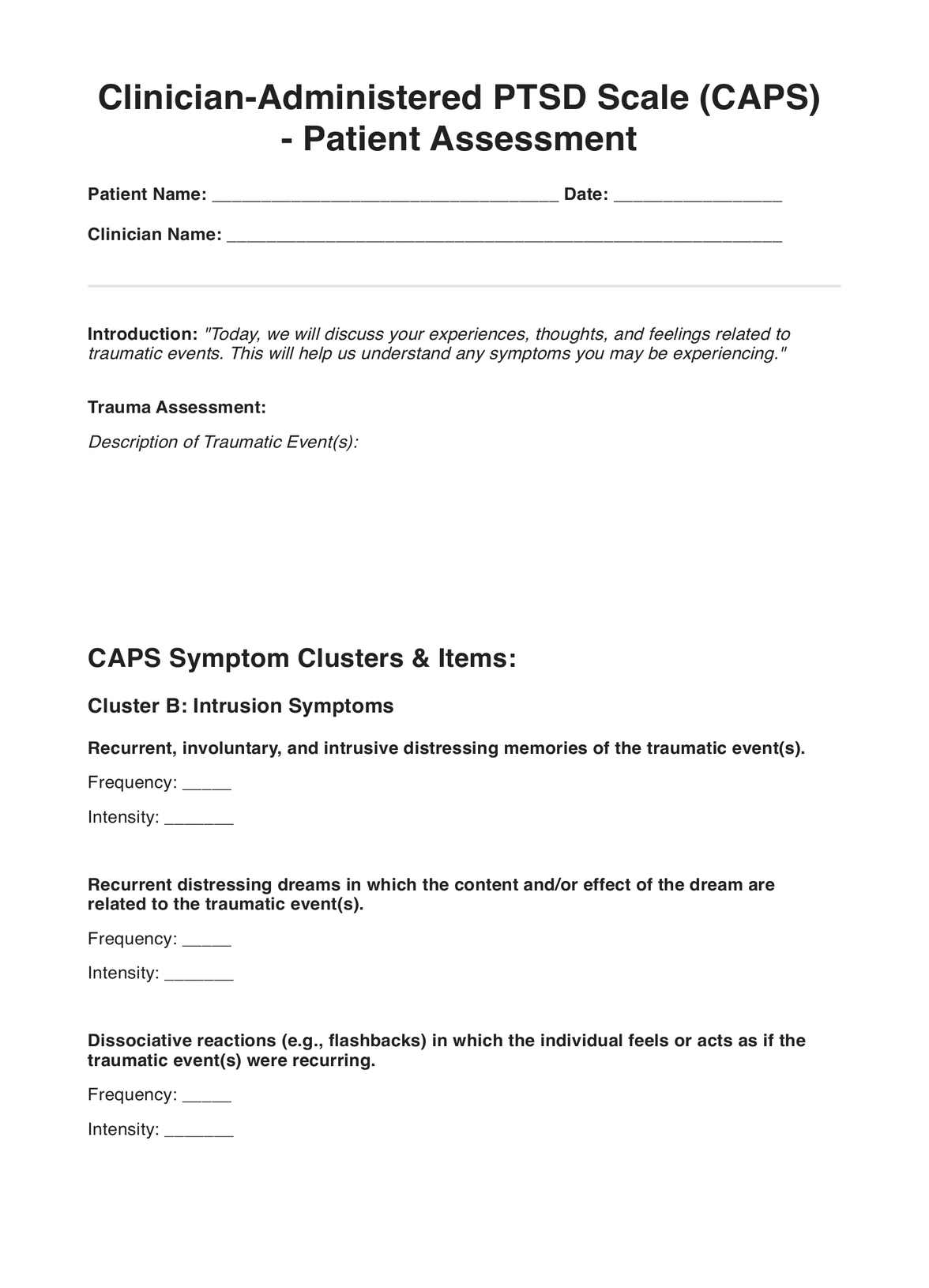The CAPS is primarily used by mental health professionals, including psychologists, psychiatrists, and counselors, who diagnose or treat individuals with PTSD.

CAPS-5
Explore the Clinician-Administered PTSD Scale, a reliable tool for diagnosing and assessing the severity of post-traumatic stress disorder.
Use Template
CAPS-5 Template
Commonly asked questions
The CAPS is used during the diagnostic process to assess the presence and severity of PTSD symptoms. It can also be used throughout treatment to monitor progress and adjust the treatment plan.
The CAPS is administered through a structured interview with the patient. The clinician asks a series of questions related to PTSD symptoms and rates the intensity and frequency of each symptom based on the patient's responses.
EHR and practice management software
Get started for free
*No credit card required
Free
$0/usd
Unlimited clients
Telehealth
1GB of storage
Client portal text
Automated billing and online payments











